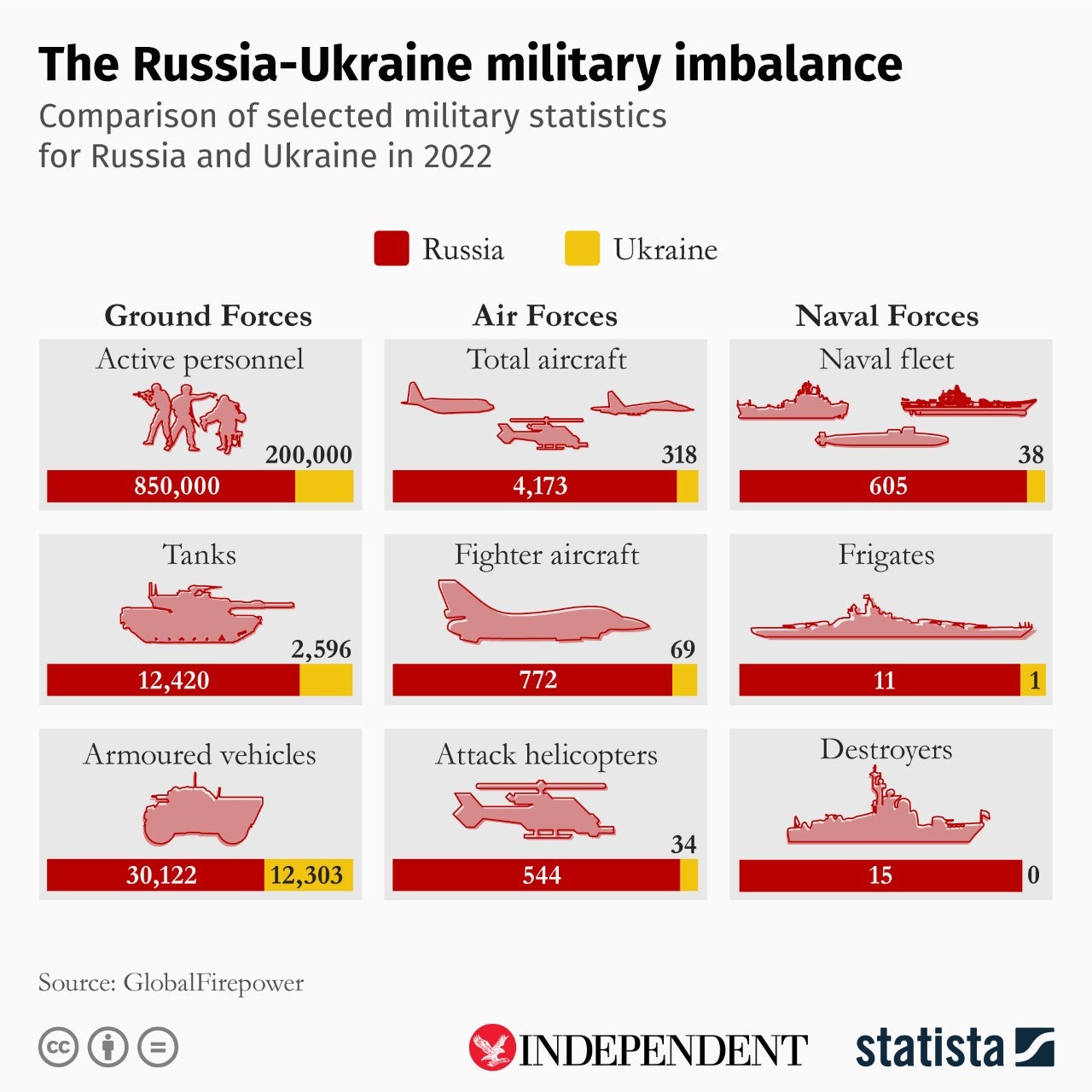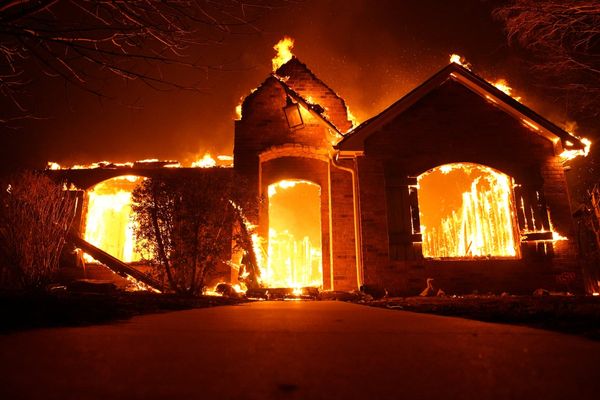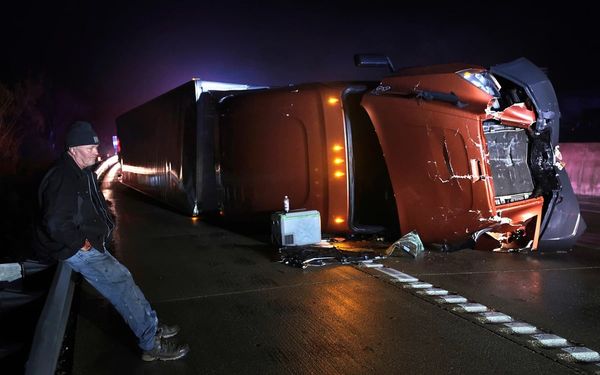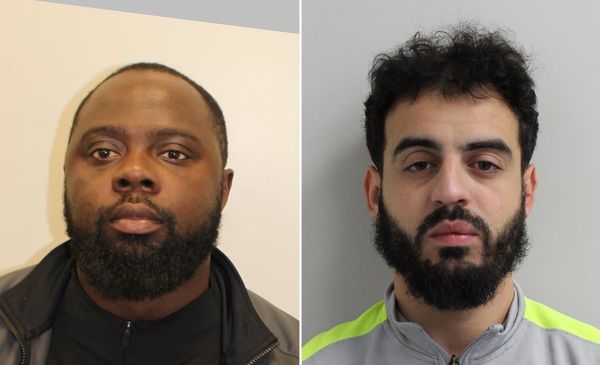
Keir Starmer has accused Boris Johnson’s Tories of “enabling” Russian influence by turning a blind eye to the use of London by Vladimir Putin’s allies as a venue to launder their “dirty money”.
The Labour leader repeated calls for Mr Johnson to return an estimated £5m in donations from Russian-linked sources and urged the prime minister to clamp down on the “cottage industry” lobbying on behalf of the Putin regime in the UK.
A failure to act now “will only further strengthen Vladimir Putin in his attempts to stalk and menace his neighbours and democracies around the world,” Sir Keir warned.
His comments came ahead of an emergency meeting of Nato defence ministers in Brussels on Wednesday, where defence secretary Ben Wallace will stress the need for vigilance in the coming days and weeks.
Mr Wallace and chief of defence intelligence Lt-Gen Sir Jim Hockenhull told MPs in a conference call on Tuesday that Moscow’s claims to be de-escalating the crisis by withdrawing troops from the borders of Ukraine were “a bit of a mirage”, with little clear evidence of a pullback on the ground.
Meanwhile Boris Johnson urged EU allies to “strengthen coordinated measures at pace” to present a united front against Russian aggression.
Following a phone conversation with European Commission president Ursula von der Leyen on Tuesday, a Downing Street spokesperson said: “The pair discussed the grave situation on the Ukrainian border, and agreed that the world needed to remain vigilant in the coming hours and days.
“The prime minister thanked President Von der Leyen for her close cooperation on sanctions to date, and said that the UK and the EU should continue to work with allies to prepare a package of economic measures that would punish Russia if they breached Ukraine’s sovereignty.
“He welcomed the unity of allies, but said more could be done to strengthen coordinated measures at pace.”
After chairing a meeting of the government’s Cobra emergency committee earlier in the day, Mr Johnson said the latest intelligence on troop movements was “not encouraging”, with field hospitals being set up in Moscow-allied Belarus and combat battalions moving closer to the Ukrainian border.
While there was a clear “avenue for diplomacy” opened up by recent positive comments from Vladimir Putin’s regime, Russia remained in a position where it could launch an invasion with huge force “virtually at any moment”, said the prime minister.
The chair of the Commons Foreign Affairs Committee, Conservative MP Tom Tugendhat, said no credence should be given to statements from the Russian foreign ministry claiming troops were being moved out.
“Let’s not pretend that we can believe anything that’s coming out of Moscow,” he said. “They have lied and lied and lied and, not surprisingly, are continuing to lie.”

Russia expert Bob Seely MP, a member of the Commons Defence Committee, told The Independent that Moscow’s assertions about its intentions in Ukraine cannot be taken at face value.
Any move by Putin to draw back from the brink of war may reflect nothing more than an attempt to “regain the strategic initiative” after the US deprived him of the element of surprise by releasing precise intelligence about the possible timing of an invasion and the planned use of “false flag” provocations to justify intervention, said the Isle of Wight MP.
“To what extent this is a de-escalation is anyone’s guess,” said Mr Seely.
“You could argue that the US scooped the Russians and got inside the Russian decision-making curve.
“Putin lost that element of surprise, which made it more difficult for his GRU goons to carry out provocative acts inside Ukraine.”
Russia previously announced the withdrawal of troops from Syria, only to establish permanent bases just months later, he pointed out.
“I don’t know if this is genuine, if there is still an intention to invade, or if there ever was an intention to invade,” said Mr Seely.
“What I do know is that this crisis has not gone away. At some point in the coming decade, I have no doubt Putin will try to collapse Ukraine, he will try to undermine the unity of Nato and he will continue his propaganda war at home to try to ensure the West is seen as an enemy not a friend of the Russian people.”
There was also growing concern about a wave of refugees from Ukraine heading westwards in the case of an invasion.
Mr Tugendhat told the i newspaper: “Whether or not they end up coming here indirectly or illegally or whether they end up going to other places first, there is going to be a huge pressure if this happens.”
And the chair of parliament’s all-party group on Ukraine, Tory MP Mark Pritchard, said: “The EU needs to avoid another migration crisis. It is highly likely that the whole of the EU will be affected, the UK too, but France, Poland, Hungary and Germany are most likely to feel the biggest effect.”
Liz Truss, the foreign secretary, insisted it was too early to make commitments to take in refugees.
Setting out his demands for action to clamp down on Russian dirty money, Sir Keir said: “For a decade, the Tories have not just failed to challenge Russian influence – they have enabled it.
“As a result, the UK is seen as a laundromat for kleptocrats’ dirty money, our institutions have been damaged and an entire cottage industry has grown up dedicated to lobbying for and protecting those close to the Kremlin.”
He called on Mr Johnson to “get his own house in order” by returning Russian-linked gifts and reversing plans to change the law to allow unlimited overseas donations to political parties.
And he said the prime minister should reform Companies House and create a register of overseas entities and a register of foreign agents, as well as bringing forward new counter-espionage laws and giving additional powers to the Electoral Commission to protect democracy.







